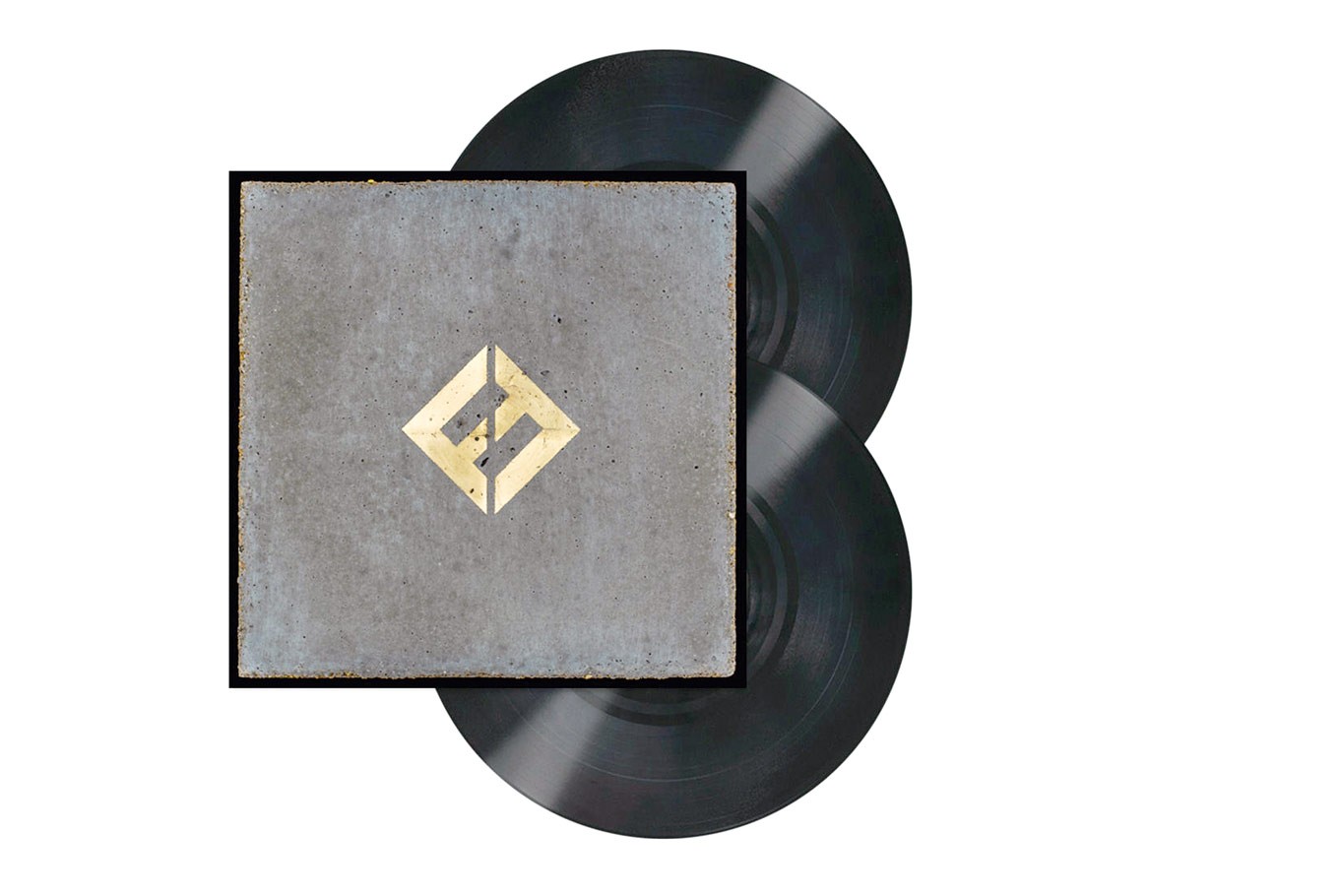Popular Reads
Top Results
Can't find what you're looking for?
View all search resultsPopular Reads
Top Results
Can't find what you're looking for?
View all search resultsAlbum Review: 'Concrete and Gold' by Foo Fighters
Concrete and Gold is pretty good, but it’s a record that’s easier to respect than obsess over.
Change text size
Gift Premium Articles
to Anyone
 Concrete and Gold by Foo Fighters (Foo Fighters/File)
Concrete and Gold by Foo Fighters (Foo Fighters/File)
I
t is tempting to say that on their ninth and latest record, the Foo Fighters sound reenergized, but barring a few unbalanced-sounding albums in the mid-2000s, the most consistent formula in the veteran post-grunge rockers’ music has always been their enthusiastic energy.
Even their softest ballads are imbued with that dramatic sense of bigness — a sense of being at once personal and very general. Heck, even the tumultuous recording of 2002’s One By One resulted in what remains one of the band’s biggest and most rocking tracks, “All My Life.”
This is why the Foo Fighters remain one of the biggest musical acts in existence — certainly one of the few massive rock bands still filling stadiums. Their ability to turn that energy on and off is certainly a major part of their status as rock royals.
So here’s the breakdown on the new album. Concrete and Gold is pretty good, but it’s a record that’s easier to respect than obsess over. It’s one where thankfully the marketing doesn’t involve overly elaborate gimmicks — such as 2014’s songs-about-eight-different-cities HBO-TV-show-supported Sonic Highways — and instead it’s got some of the band’s most involved production yet.
The focus is on the production and arrangements. Spacious and stacked vocal harmonies abound, gloriously laid upon an almost wall-of-sound production in its instruments. The Foos have always had loud guitars, but here they evoke the layered, buttery feel of late-1970s progressive rock records.
The songwriting for the most part leans more toward those more experimental Foo Fighters songs usually tacked onto the middle or end of their records; not necessarily worse by any means, but certainly dropping that stadium-filling vastness and directly emotive quality of their biggest hits.
It’s a more pronounced version of the Sonic Highways album in terms of songwriting (not concept). The songs take time to breathe and reveal themselves, with more subtle refrains and verses. Like that album, Concrete and Gold doesn’t have any stand-out tracks (though some, like the first two singles “Run” and “The Sky is a Neighborhood,” do come close, both in its massive chorus and for the latter, glorious choral refrains), but it works nicely as a unified collection of songs.
Instead there are tacks like “Arrows,” which takes the pounding, celebratory attack of Foo hits like “Best of You” and fleshes it down with an almost looped refrain that sustains itself pretty much throughout, the whisper-strum-to-loud-crescendo of “Dirty Water” that harkens back to the band’s late-90s days, and the stoner-grunge of “La Dee Da” (which comes closest to the “Wasting Light” approach).
These songs are unlikely to one day be staples in a Foo Fighters set list, but that’s a good thing. Like the best Foo ditties, they feel content with themselves instead of having to be another arena rock anthem. The modesty of these songs is a breath of fresh air.
Producer Greg Kurstin (Adele, Sia) puts that alternative-pop sheen in the Foo’s music comfortably. His guitars — the key instruments in the band’s music — swell and explode with obvious thickness, but sustain a tonal clarity, keeping their characteristics.
In a lot of ways, he does what producer Butch Vig did with 2011’s Wasting Light (still one of the band’s best records and certainly their best latter day one) only substituting the heavy-mid crunch of that album for a more refined crispiness and color.
Opening track “T-Shirt” engages with the kind of dramatic dynamic shift that certainly doesn’t pop up often in mainstream music. The song also acts as a perfect summary of the kind of thickness the record is all about. Grohl’s vocals has since long evoked the kind of attitude-heavy confidence only a few rock gods have. It’s not particularly amazing, but that’s not the point; Grohl’s earnest regular rock guy works wonders within the Foo catalogue, and here Kurstin utilizes it to tilt.
“Run” sees Grohl slipping between melancholic breathiness and crunchy hype guy with ease. Behind him, the instrumentation helps, with Grohl, co-guitarists Pat Smear and Chriss Shiflett blanketing each other’s guitar licks in a thick haze, without losing their individual tones and notes.
Concrete and Gold should be encouraged as a Foo Fighters records that is content with just being. Yes, there are guest stars (pop star Justin Timberlake is somewhere within the tracks, though you’d be hard-pressed to notice, and a member of Boyz II Men is also on the title track), but for the most part, it feels like a rock record in its most essential sense.
In a way, it’s just like every other Foo Fighters record, only this time there’s no marketing gimmick involved. Reliable and consistent are the best words to define its — and its creators — success.









